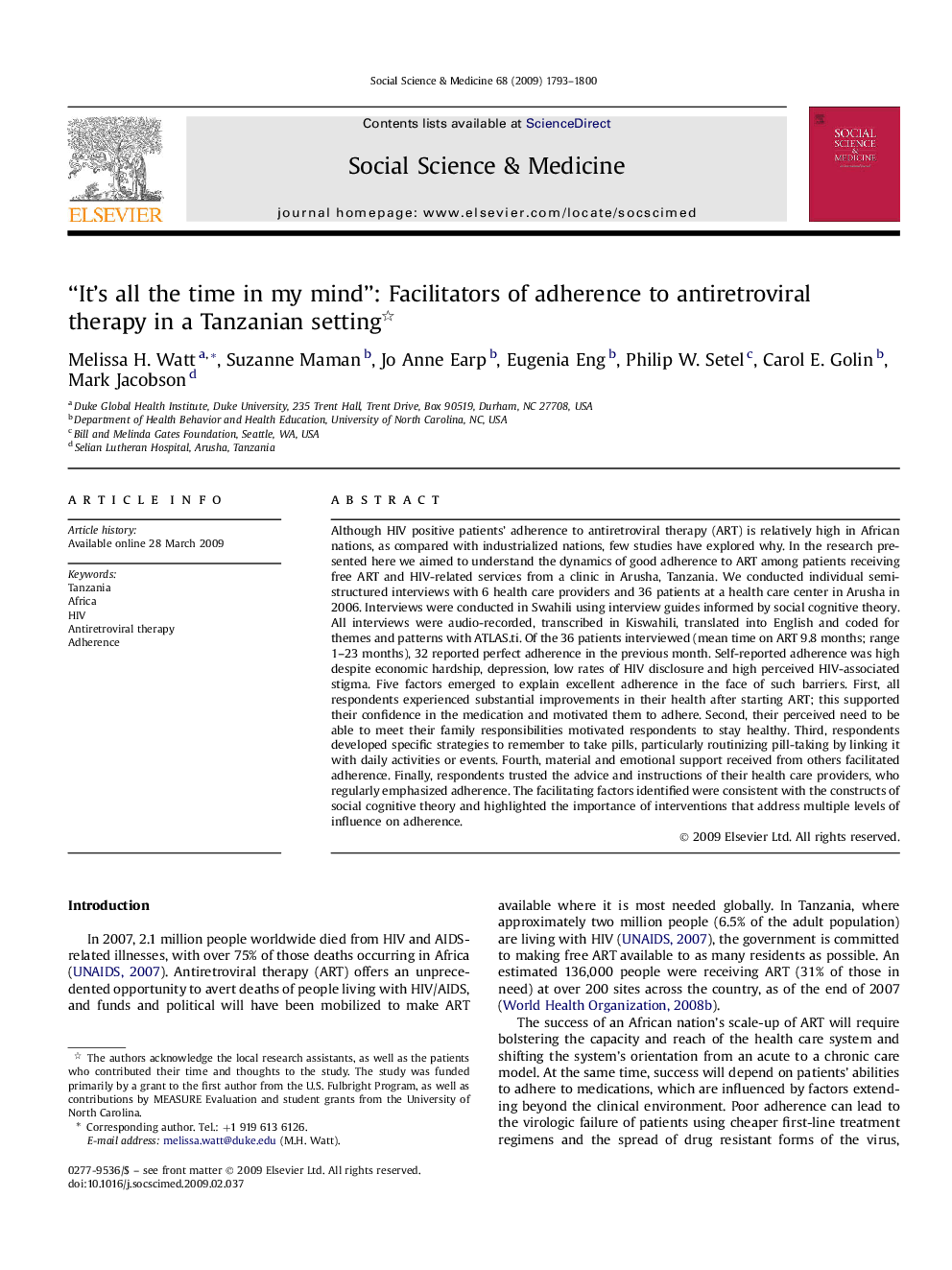| کد مقاله | کد نشریه | سال انتشار | مقاله انگلیسی | نسخه تمام متن |
|---|---|---|---|---|
| 953608 | 927593 | 2009 | 8 صفحه PDF | دانلود رایگان |

Although HIV positive patients' adherence to antiretroviral therapy (ART) is relatively high in African nations, as compared with industrialized nations, few studies have explored why. In the research presented here we aimed to understand the dynamics of good adherence to ART among patients receiving free ART and HIV-related services from a clinic in Arusha, Tanzania. We conducted individual semi-structured interviews with 6 health care providers and 36 patients at a health care center in Arusha in 2006. Interviews were conducted in Swahili using interview guides informed by social cognitive theory. All interviews were audio-recorded, transcribed in Kiswahili, translated into English and coded for themes and patterns with ATLAS.ti. Of the 36 patients interviewed (mean time on ART 9.8 months; range 1–23 months), 32 reported perfect adherence in the previous month. Self-reported adherence was high despite economic hardship, depression, low rates of HIV disclosure and high perceived HIV-associated stigma. Five factors emerged to explain excellent adherence in the face of such barriers. First, all respondents experienced substantial improvements in their health after starting ART; this supported their confidence in the medication and motivated them to adhere. Second, their perceived need to be able to meet their family responsibilities motivated respondents to stay healthy. Third, respondents developed specific strategies to remember to take pills, particularly routinizing pill-taking by linking it with daily activities or events. Fourth, material and emotional support received from others facilitated adherence. Finally, respondents trusted the advice and instructions of their health care providers, who regularly emphasized adherence. The facilitating factors identified were consistent with the constructs of social cognitive theory and highlighted the importance of interventions that address multiple levels of influence on adherence.
Journal: Social Science & Medicine - Volume 68, Issue 10, May 2009, Pages 1793–1800